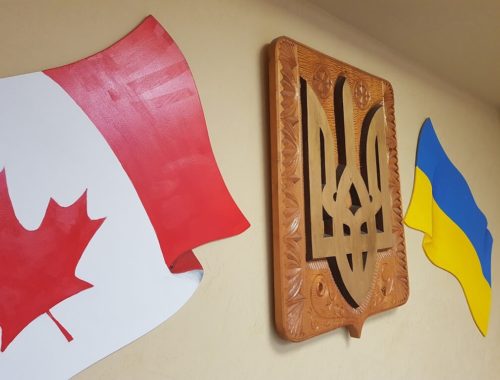
Sephora’s customer appeal attempt went up in flames
The French personal care chain Sephora came under fire when it introduced a new perfume kit by Pinrose, a San Francisco-based perfume company, on Oct. 5, titled “Starter Witch kit”. The modern practicing witches world-wide took to Twitter to condemn the name and the concept behind it.
Sephora selling “witch kits” actually makes me really upset. Witchcraft isn’t something you just throw around, people put their entire being into this way of life and work so hard at it. I’ve been made fun of way too much for being a witch for it to just become another trend.
— ur witch gf (@kayyloween) September 1, 2018
“Witchcraft isn’t something you just throw around,” tweeted Kiera (@kayyloween) from Edmonton on Sept. 1, 2018. “People put their entire being into this way of life and work so hard at it. I’ve been made fun of way too much for being a witch for it to just become another trend.”
The kit contained a deck of Tarot cards, a bundle of dried white sage herb, a rose quartz crystal, and nine Pinrose fragrances, all for $42. Sephora explained in a news release that the idea behind the kit was “to create something that celebrates wellness, personal ceremony, and intention setting with a focus on using fragrance as a beauty ritual”.
Canadian witches did not take the product lightly.
“I would take it no more seriously than if Sephora started to sell holy water because it acts as a good facial toner,” said Tamara, a non-practicing witch from Ottawa, in a phone interview.
Tamara, 53, comes from a family of witches dating back generations to Trier, Germany – a region famous for witch burning and witch trials.

The incident with Sephora’s kit shines a light on an active religious group among the multitude of religions in Canada. Witchcraft in the modern sense is usually associated with the practice of Wicca, originating in the 1960s and 70s. Wicca is legally recognized with Correctional Services of Canada, as well as the provincial Ministries of Correction, and in the military. There are two Wiccan university chaplains across Canada: in University of Alberta, and the University of Toronto. The Wiccan community of Canada counts over ten thousand Wiccans, with Ontario leading with over 4,400 Wiccans, followed by British Columbia (2,015) and Alberta (1,540). The practice is usually coven-based or solitary.
But according to a University of Guelph professor, Wicca is cobbled together from old documents like witchcraft confessions and other historical records, dating back to the 14th century Europe.
“Today anyone who says ‘I am a witch, I practice witchcraft’ – that’s usually what they’re practicing. How much they can actually get at what that religion was, is difficult to say, because there were no recordings of these things, and if there were, they would have been burned by the Church,” said Sierra Dye, a postdoctoral fellow in Scottish studies at the Guelph History Department.
Dye, 38, teaches a course on Witch Hunts & Popular Culture. She said that witchcraft was introduced in Canada by the British colonizers, who brought with them their Christian beliefs and their standard ideas about witchcraft.
“Protestantism defined witchcraft as less about people who practiced folk magic and [more] with witchcraft being a product of associating with the devil,” Dye explained. “Witches become devil-worshipers, it was a crime of making a pact with the devil and serving him, who gives the witch her power.”

Traditionally, though she said, witches were more likely to be midwives and healers of the community, and women who knew how to brew the right cup of medicinal tea or take care of various illnesses.
“They probably self-identified as healers and charmers rather than magical practitioners,” Dye said.
But there still are practicing witches and Wiccans in Canada – the owner of The Rock Store on Harbourd Street in Toronto said that she identifies as one.
“Wicca is an earth-based form of faith that focuses on the honoring of the connection between the God and the Goddess, the cycles of the earth and the moon and other celestial planets and yourself,” said Samantha, a third Degree High Priestess in the Runic Tradition of Northern Witchcraft.
Samantha teaches the traditional runic practice in the Norse-Germanic lineage of witchcraft. For her, Wicca is a personal spiritual practice that is based on self-development, connection to the earth and the connection to the gods.
“A lot of people assume that witchcraft is about getting power,” she said. “What people need to understand is that this is a spiritual practice. And if you allow yourself to connect to the movements of the earth and cosmos and all the celestial beings, you discover that.”
“People today who call themselves witches is usually a Wiccan and they distinguish themselves and what they do and believe from what people were accused of doing,” said Leslie Hayes, a University of Toronto professor. “The word ‘witch’ now means something very different in contemporary North American society.”

Hayes teaches a course titled Witchcraft and Magic in Christian Tradition. She explained that Wiccans aren’t easily defined, because they set their own rules. She distinguishes very sharply modern witches from the constructions of a witch in the 14-15th century Europe.
“In order to understand them it’s important to ask them how they define themselves,” Hayes said.
Wiccans, in a sense, do not have an overseer, and everyone follows their personal path. This type of practice is what prompted Tamara to leave Wicca and convert to Christianity in 2016. Although she did not mind being called a witch, she found the gods to be harsh.
“One of the reasons why I converted – why would I spend any time worshiping gods that are quite frankly ‘assholes’,” Tamara said, referring to the Hellenic practice, where practitioners worship ancient Greek Gods like Zeus and Athena.
“I was feeling empty [as a pagan].”

Tamara used to read Tarot cards, was active in various covens, and sporadically worked with police as a psychic to help their murder investigations.
Her take on the witch industry today is very clear: she thinks that modern witches are misguided.
“Paganism today – the way I saw it practiced – is a great deception,” she said. “All it’s doing is making people feel good about bad choices. There is no real structure in paganism, and there is nobody to hold you accountable.”
Still, she thinks there is a reason that the profile of witchcraft is growing.
“Media likes to portray the ‘different’, anything but traditional, and that’s where the interest towards witchcraft increases,” Tamara said.
In October, BBC published an article about a group of witches in New York who planned to curse Donald Trump. The idea died down over the past few months. “Boy, I laughed about that one,” Tamara said.

Another difference between modern witches and those of the past are their tools. According to professor Dye at Guelph, generally, it’s not very common to see items, like a Book of Shadows or an athame (ceremonial dagger), that were left behind.
“The spells and charms that are recorded are usually people confessing to doing something as part of a charm,” she said.
Tamara’s family also did not leave her many artifacts, as they followed a strong oral tradition of witchcraft.
“Religious items aren’t passed on, it was important that you find what is right for you, it’s part of your journey,” she explained. “The accouterment of paganism is far more important to modern-day witches than to people who have traditionally practiced.”
She called the items in the Sephora witch kit “crap”. She also felt the whole idea was “offensive” and, a money grab. After the online backlash, Sephora took the product off its shelves early October. A supervisor at Toronto’s Sephora call centre said that they don’t have information for that item.
“It’s not on our website anymore so it’s maybe out of stock, or they already have canceled the production for that one. It’s a business decision.”

However, Sephora is not the only brand that infuses New Age practices with beauty and wellness. Soji Energy, an online merchandise company, sells water bottles with installed prism crystals for $80, which, as the company claims, infuses that water with metaphysical properties of the stone. Another online beauty company Fourth Ray offers a Rose Quartz Roller for $18. Neither company seemed to have a backlash as much as Sephora.
Today witchcraft can be found deeply rooted in society – professor Dye said that people daily exercise some forms of superstitions.
Follow me on social media!“It is reminiscence of popular belief in magic and the supernatural and there’s still people who have their superstitious practices,” Dye said. “I myself throw salt over my shoulder if I spill the salt. Everybody has a little level of superstition practice in them.”
You May Also Like

Canadian sniper rifles headed to Ukraine by September
April 2, 2019
User data and understanding the audience: how can the media adapt
February 3, 2019

